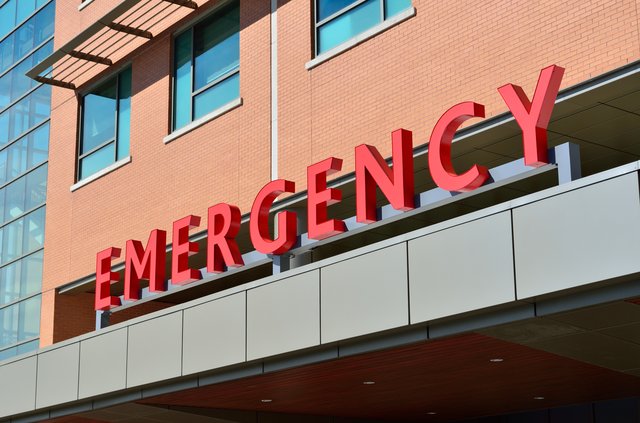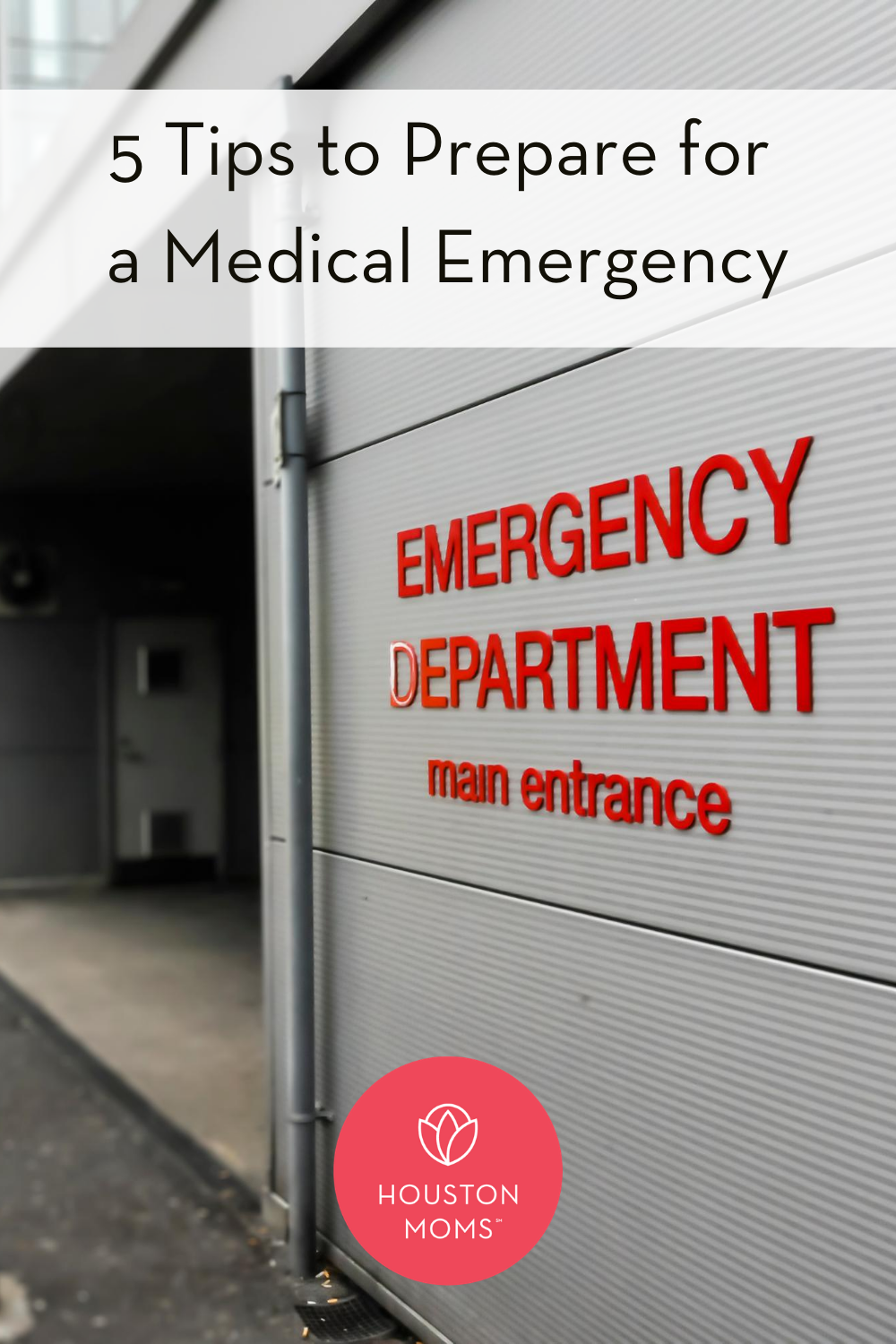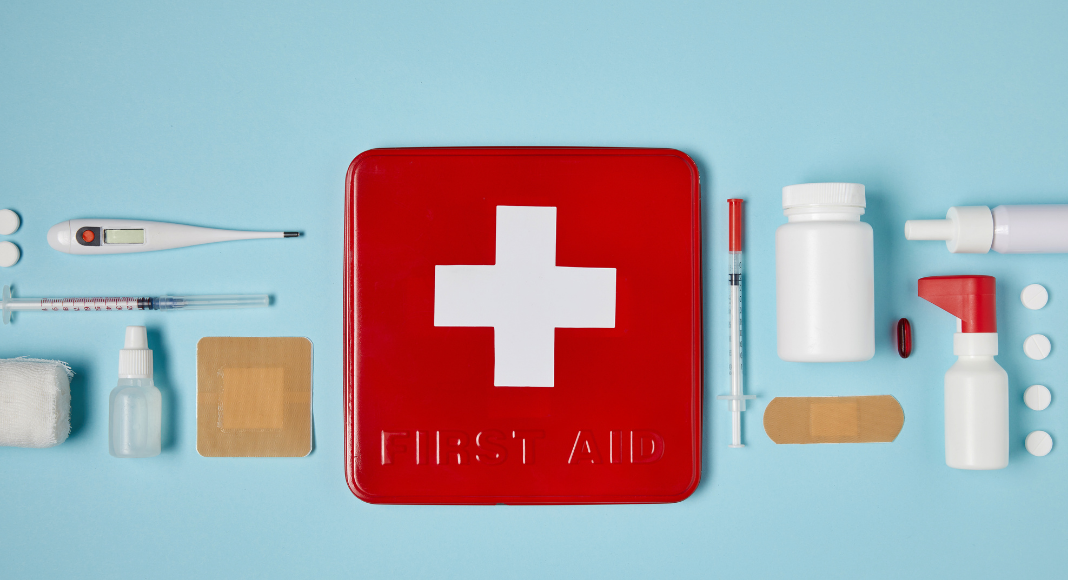Let me tell you all a story of my recent medical emergency. It was a Tuesday evening at the end of July, and I was on my way home from picking up my girls from daycare. As I made my way through the neighborhood, I started to feel a strange pressure in my head. Well, that is weird, I thought. As the pressure mounted, the world in front of me started to spin. I immediately recognized that I was having vertigo. Let me just say, vertigo is NOTHING like being dizzy or off balanced, and it is a horrible feeling.
As I kept driving, it got worse. I realized that even though I was so close to my house, I couldn’t keep going safely. What the heck is happening to me? I pulled over and used my Bluetooth in my car to call my husband. He didn’t answer, and I started to panic. Holy crap, if I can’t get ahold of him, who will I call? I started to get nauseated and scared and started crying. I talked to the girls and tried to keep them calm, and I called my husband again. He answered this time! As I explained my location and symptoms, he told me to call 911 and that he was on his way.
I called EMS and told them where I was and what was happening. In the meantime, my husband got there and took over the phone call. He is an emergency medicine physician and told them he was concerned I could be having a stroke. Oh my God! I thought. The vertigo got so bad I started throwing up outside my car. EMS soon arrived, and I looked into the back seat to tell my girls I loved them and not to be scared because I would see them soon. Will I see them again? My husband’s words kept racing in my mind, and I was terrified. The paramedic helped me into the ambulance, strapped me onto the stretcher, and off we raced to the hospital.
To make a long story short, I did not have a stroke {Praise Jesus!}. I had a full workup and was admitted overnight, and in the end was diagnosed with a severe case of vestibular neuritis. This condition can affect anyone anytime, and it causes inflammation of the cranial nerve that controls your balance and equilibrium. There is usually no warning, only an abrupt onset of vertigo, nausea and vomiting, and balance and concentration difficulties. Fun, right?
Following my discharge, the vertigo and nausea lingered for about a day, and I could only lay in bed. The next few days I could sit upright, but had trouble walking. I had nystagmus for another few days, which causes your eyes to move rapidly back and forth, so it was still hard to see or focus on much beyond my cell phone. I ended up having to take off work for 2 weeks. I gradually improved, but fast forward a month later and I am still not 100% back to normal. Most days I still feel off balanced, like there is a weight on the top of my head. The bad part about this illness is you just have to wait it out.
So why am I telling you all this? I want you to picture yourself in this situation. No one expects a medical emergency, but there are practices you can put in place to be prepared in case one happens to you, your partner or your children.
Here is what I learned::
- ALWAYS CARRY YOUR CELL PHONE with you, and if possible, keep it charged and hooked up to the Bluetooth in your car. In the past I have been tempted to zip down the road or to the daycare without my phone, but never again. In my case, when the vertigo hit me, I couldn’t see my phone to dial anyone, but I could use my Bluetooth.
- KNOW YOUR MEDICAL HISTORY, including your medical conditions and what medications you are on. I didn’t have my wallet, ID or insurance card with me, but I was able to provide enough medical information to make up for that.
- Have a plan in place for CHILDCARE. My husband and I were not readily prepared for this. He wanted to come with me in the ambulance, but he had to get our girls home and find someone to come watch them. Think of who you would call if something happened to you or your spouse, be it a family member, a neighbor, a coworker. We also had to utilize our parents to help with childcare while I recovered.
- HAVE INSURANCE and build up your HSA for unexpected medical costs. I am starting to get the bills from my 24 hour stay at the hospital, and the total cost for everything is almost $35,000. Wow! I am very grateful that not only do I have insurance to help pay for this, but that we have funds in our HSA to cover our costs.
- Be prepared to TAKE OFF WORK if you need to after a medical emergency. As I said above, I had to take off work for 2 weeks. I was able to do this due to the nature of my job, as well as having savings to be able to afford to. Think about what you would do in this situation for your work, and perhaps consider enrolling in short- or long-term disability if you are able to.
I hope the above story and recommendations give you something to think about. No one wants to go through a medical emergency, especially during the time of a pandemic, but it is better to be prepared than caught off guard. Stay safe out there mommas!



















Great info, making a family emergency plan can help keep everyone on the same page. Include emergency contacts, plan of how to communicate, instructions for kids in some more likely scenarios. This info can also be valuable for first responders if a younger child or someone who is mentally handicapped has to call 911 when they are home with one adult and that adult is injured or seriously ill. This emergency plan/contact sheet can provide first responders/police with info to help line up care for the child/children.
Yes I would definitely agree!